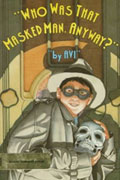Jack from Vail, CO, writes: “How do you write dialogue? When I write my dialogue sounds dull!”
 I believe that the most important thing to know about writing dialogue, is that it is not the way people, in fact, speak. Talk between real people is very repetitious, redundant, filled with fragments, incomplete sentences, often rambling, and not necessarily on point. Just listen to it. We understand this, accept it, and indeed, talk it. But to write it that way makes the dialogue fall flat.
I believe that the most important thing to know about writing dialogue, is that it is not the way people, in fact, speak. Talk between real people is very repetitious, redundant, filled with fragments, incomplete sentences, often rambling, and not necessarily on point. Just listen to it. We understand this, accept it, and indeed, talk it. But to write it that way makes the dialogue fall flat.
By way of contrast, written dialogue, while it echoes this kind of speech, and uses some of its mannerisms, needs to be purposeful. What distinguishes one characters’ “spoken” words in text might be mannerism, or colloquialisms, but mostly it has to do with what the character wants. Beyond all else it reveals the character’s thoughts.
 In this context, one of my proudest accomplishments is my book, Who Was That Masked Man Anyway? Soon to be reissued by Scholastic (This is the old cover; the new cover is not yet available.), it is one hundred percent dialogue, the result of an editor’s challenge.
In this context, one of my proudest accomplishments is my book, Who Was That Masked Man Anyway? Soon to be reissued by Scholastic (This is the old cover; the new cover is not yet available.), it is one hundred percent dialogue, the result of an editor’s challenge.
It’s about two boys in the 1940’s who are addicted to kids’ radio adventure shows. And it is, in its fashion, a radio show. There is not one “he said,” or “she said,” in the whole book. As you read it, you hear it. At the book’s climactic moment, there are eight characters in a room, all talking, and I like to think the reader can tell who is speaking because you know—hopefully—what they would say in the situation.
I also think it is the funniest book I have written. Maybe I should be writing radio plays.